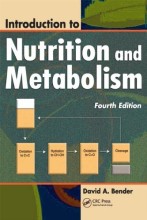Antioxidants: Vitamins
11 important questions on Antioxidants: Vitamins
What is the relation between vitamn intake and vitamin status?
Folate status assessment:
- Plasma/serum folate = most widely used marker, short term (7-40 nmol/L)
- whole blood/red blood cell folate = best mid term indicator, but laborious and prone to error (depends on Ht measrement)
- total folate test most common in routine labs:
- gold standard microbial assay, but sensitive to antibiotic treatment
- total folate binding test
- total folate (routine labs) vs folate profile (research labs)
B12 status assessment:
- Direct plasma/serum B12 analysis (~200/300-600 pmol/L)
- functional markers better than B12
- lack of standardisation between different B12 tests..!
- hydroxocobalamin is used as a treatment for cyanide poisoning
- Higher grades + faster learning
- Never study anything twice
- 100% sure, 100% understanding
Are vitamin deficiencies prevalent in athletes? Maybe because they have higher turnover?
Whereas sex, age, energy intake per day did have an impact.
Recommendations for B-vitamin intake in athletes:
- No evidence to suggest better performance at higher intakes, so general recommendatinos apply:
- B6: ~1.5-1.8 mg/day
- folate: 300 yg/day
- B12: 2.8 ug/day
- with a balanced diet, no immediate concern for B-vitamin deficiency
- risk groups for deficiency are:
- dietary restrictions
- vegans (B12)
- use of certain medication (protein pump inhibitors, metformin)
- supplements use only after clinical assessment and evidence for vitamin deficiency
- not all supplements are safe! Excessive does and/or misleaing labelling, not all B vitamins are excreted!
Health effects of vit D:
- Necessary for optimal bone health (interaction with Ca and Mg)
- deficiency increases risk of autoimmune diseases and can have profound effect on human immunty, inflammation and muscle function
- compromised vit D status can affect an athletes overall health and ability to train
- i.e. By affecting bone healt, innate immunity and exercise-related immunity and inflammation
Vit D status assessment:
- 25(OH)D = accepted status marker
- optimal range 75-100 nmol/L
- insufficiency < 50 nmol/L
- deficiency < 30 nmol/L
Vit D deficiencies in athletes:
- 70% of all athletes showed an insufficient or deficient 25(OH)D level at baseline (the end of winter season)
- it is common, but not different from general population
- inadequate sun exposure, lattitude, skin type
- restra
ined eating
- low body fat % ?
picture is indoor vs outdoor sport
There is more 25(OH)D in outdoor athltes in all seasons.
At low 25(OH)D, there is high illness.
> outdoor exercise elevates vit D levels!! And therefore also the performance
Vit D recommendations:
- stimulate outdoor exercise! But consider skin cancer risk
- screen athletes:
- at least 2x per year: late summer/winter
- history bone injury, frequent illness, restrained eating/vegetarians and indoors
- correct deficiencies (< 75 nmol/L)
- D3 slightly more effective than D2
- dose:
- sun exposure
- 100 IU increases serum 25(OH)D with ~2.5 nmol/L
- > 10.000 IU/day is toxic
Safety of vit D supplements:
- Hypercalcaemia, hypercalciuria at high doses (> 100 ug/day for extended periods
- 25(OH)D > 375 nmol/L = risk for toxicity
- UVB feedback mechanism
- 10.00 IU/day ; UL: 4000 IU
- intoxication from exess supplementation is rare
Antioxidant vitamins - A and E:
- exercise leads to VO2 goes up to 10-20x -> incomplete reduction of oxygen > ROS formation
- ROS sources: skeletal muscle/mitochondria, immune cells
- two classes of ROS:
- radicals: O2-, OH-
- non-radicals: H2O2, O3
The question on the page originate from the summary of the following study material:
- A unique study and practice tool
- Never study anything twice again
- Get the grades you hope for
- 100% sure, 100% understanding





























